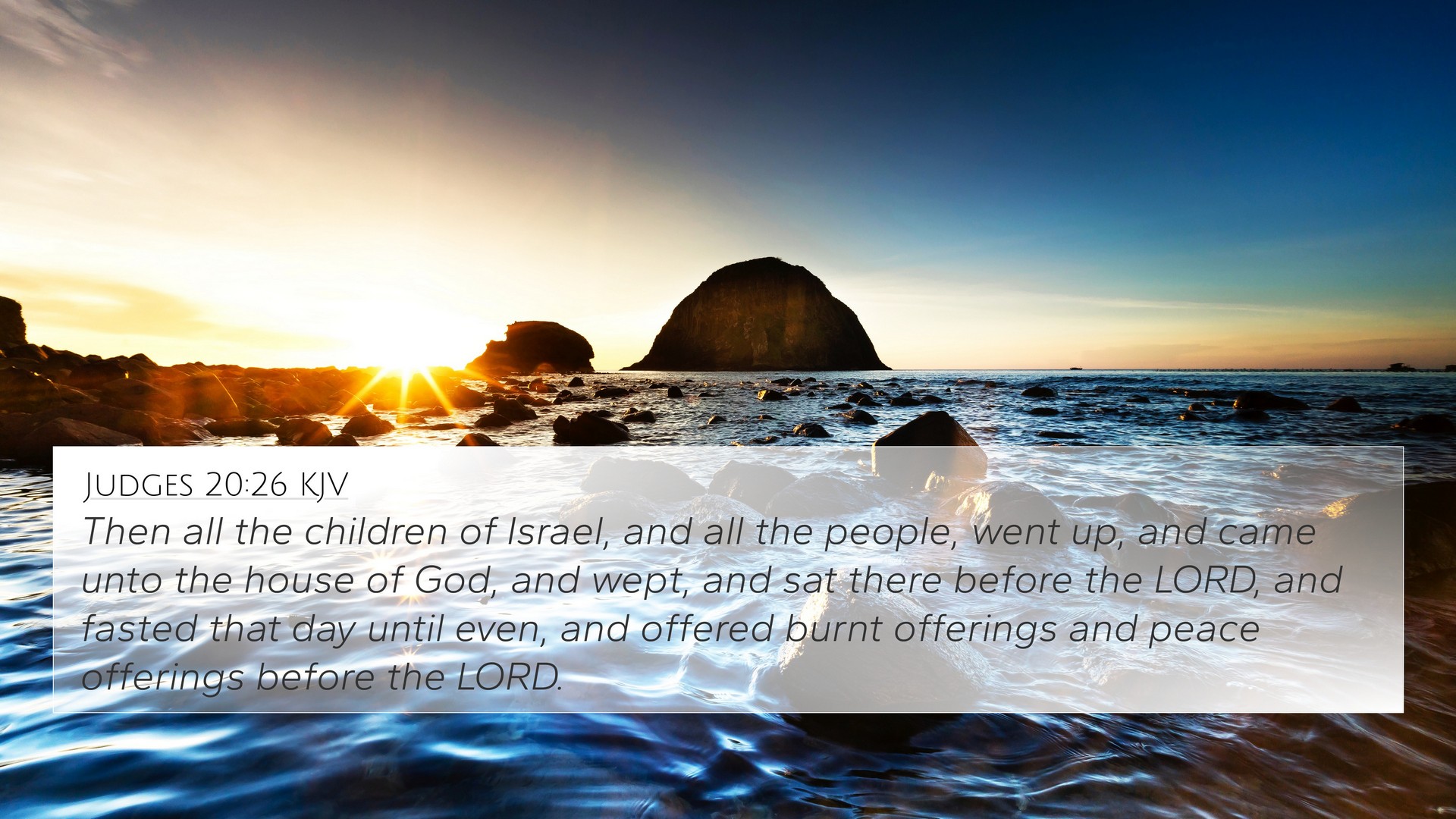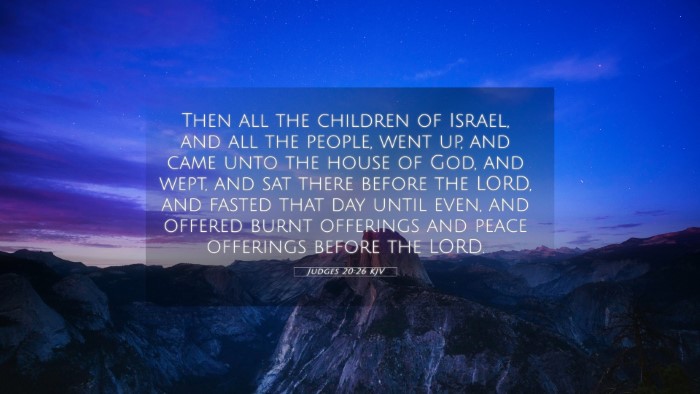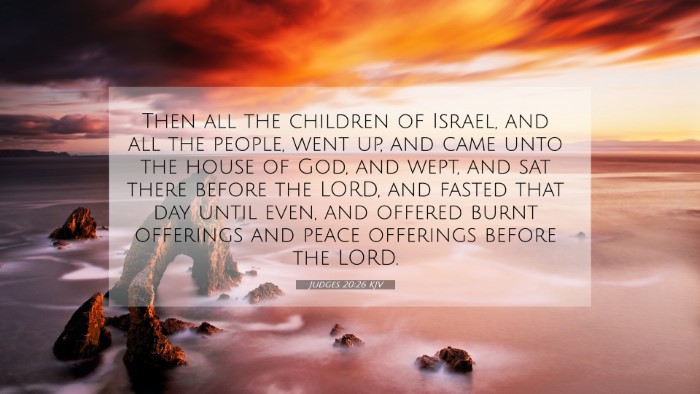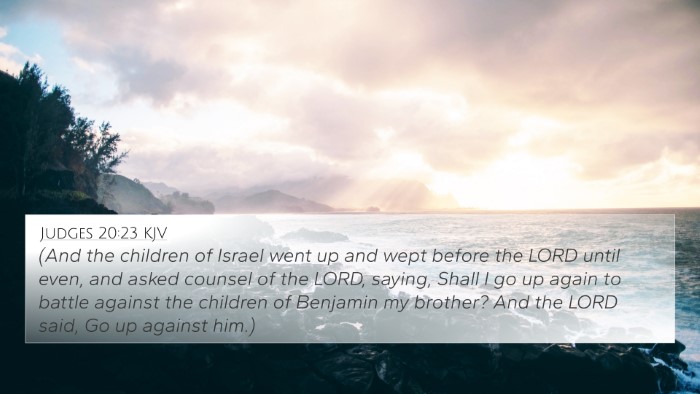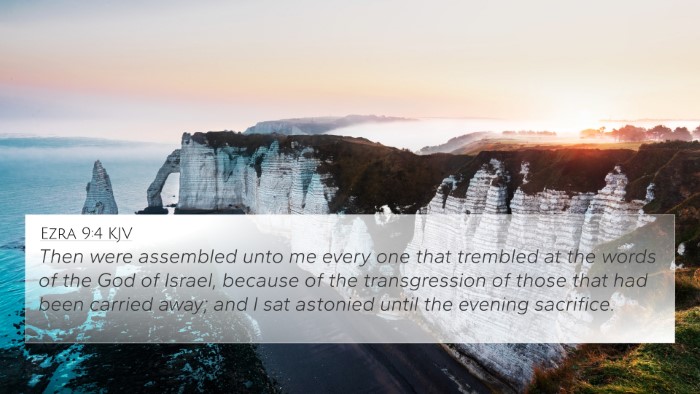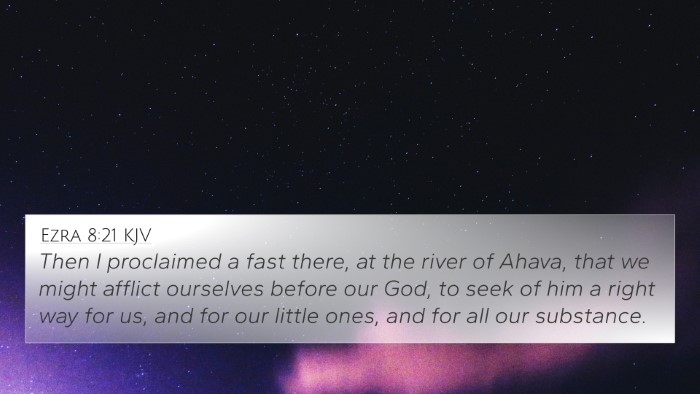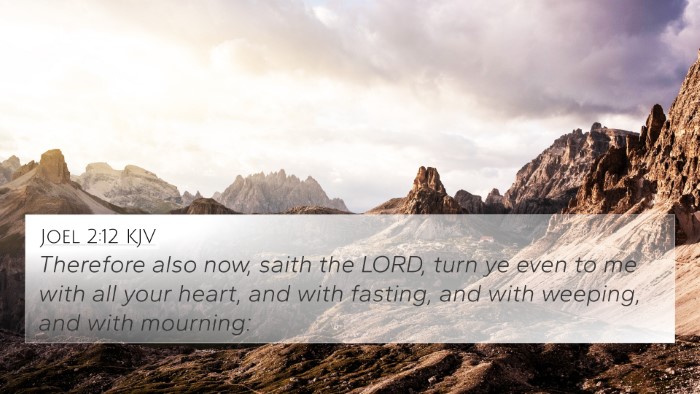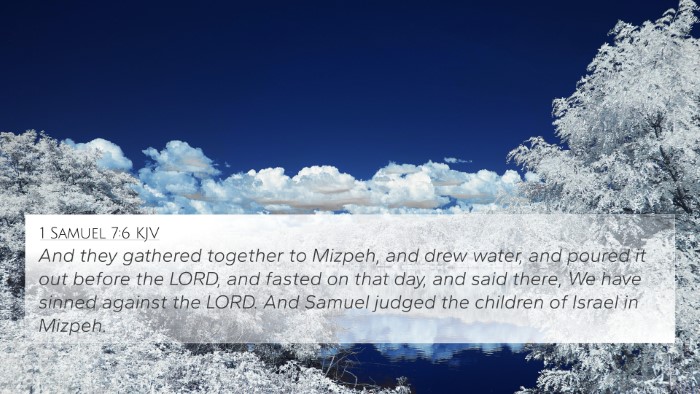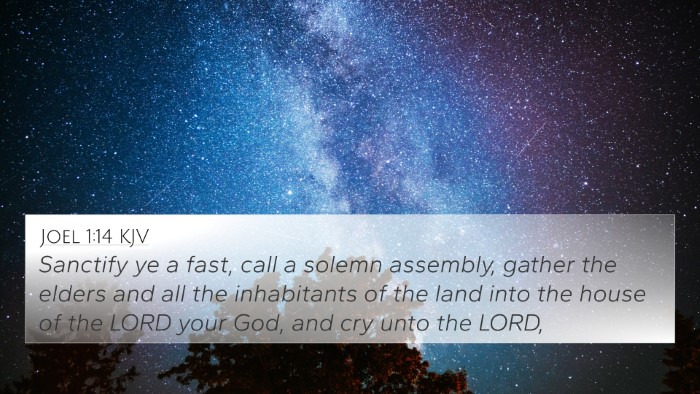Understanding Judges 20:26
Judges 20:26 states: "Then all the children of Israel, and all the people went up, and came unto the house of God, and wept, and sat there before the Lord, and fasted that day until evening, and offered burnt offerings and peace offerings before the Lord."
Summary of Judges 20:26
This verse depicts a profound moment of repentance and seeking God's guidance among the Israelites after a devastating civil conflict. After suffering significant losses, they turned their hearts towards God, demonstrating humility and a desire for divine intervention.
Commentary Insights
Matthew Henry
Matthew Henry emphasizes the earnestness of the Israelites in their prayer and fasting, noting that their grief over sin led them to seek the Lord's favor. He highlights that their actions reflect true repentance and their intention to realign with God’s will, illustrating the importance of humility in seeking God’s direction in times of trouble.
Albert Barnes
Albert Barnes notes that the gatherings at the house of God symbolize a collective acknowledgment of failure and the need for communal prayer. He points out that the people’s return to the altar represents a recommitment to their covenant with God. Barnes also discusses the significance of offering sacrifices, as it reflects their deep yearning for restoration and peace with the Lord.
Adam Clarke
Adam Clarke elaborates on the symbolism of weeping, fasting, and offering sacrifices as a comprehensive approach to seeking God’s intervention. Clarke suggests that this verse highlights the necessity of sincere contrition and interconnectedness among the people of Israel, reflecting both individual and collective responsibility in seeking forgiveness and guidance from God.
Bible Verse Cross-References
- 1 Samuel 7:6: "And they gathered together to Mizpah, and drew water and poured it out before the Lord, and fasted on that day, and said there, We have sinned against the Lord." - This verse reflects the theme of communal repentance similar to Judges 20:26.
- 2 Chronicles 20:3: "And Jehoshaphat feared, and set himself to seek the Lord, and proclaimed a fast throughout all Judah." - Both passages emphasize fasting and prayer in times of crisis.
- Ezra 8:21: "Then I proclaimed a fast there, at the river of Ahava, that we might afflict ourselves before our God, to seek of Him a right way for us." - This verse parallels the themes of seeking divine assistance and fasting.
- Joel 2:12: "Therefore also now, saith the Lord, turn ye even to me with all your heart, and with fasting, and with weeping, and with mourning." - Joel's call to repentance echoes the sentiments expressed in Judges 20:26.
- Psalm 51:17: "The sacrifices of God are a broken spirit: a broken and a contrite heart, O God, thou wilt not despise." - This reflects the heart attitude of the people in Judges 20:26 as they offer sacrifices.
- Matthew 5:4: "Blessed are they that mourn: for they shall be comforted." - Jesus speaks of mourning in a way that resonates with the grief expressed in this verse.
- Luke 18:13-14: "And the publican, standing afar off, would not lift up so much as his eyes unto heaven, but smote upon his breast, saying, God be merciful to me a sinner. I tell you, this man went down to his house justified rather than the other." - The theme of humility in seeking God's mercy is consistent across these passages.
Thematic Connections
This verse serves to connect various themes within the Bible, including:
- The necessity of repentance and seeking God's guidance in communal settings.
- The importance of sacrificial offerings as expressions of penitence.
- Interconnectedness of communal and individual spirituality, emphasizing that the whole community can collectively turn towards God.
Practical Application
For modern readers and believers, Judges 20:26 speaks volumes about the importance of recognizing one’s failings and turning to God as a community. Engaging in prayer, fasting, and seeking God's presence can be crucial in navigating times of difficulty or moral failings. This passage invites believers to reflect on their spiritual life and encourages a consistent pursuit of reconciliation with God through humility and worship.
Tools for Bible Cross-Referencing
To understand and explore the connections between Bible verses effectively, consider using the following tools:
- Bible Concordance: A valuable resource for finding words and their occurrences in Scripture.
- Cross-reference Bible Study Guides: These guides help identify related verses and themes across different books of the Bible.
- Bible Cross-Reference System: Utilizing a cross-reference system within your study Bible can enhance understanding and exploration of interrelated passages.
Conclusion
Judges 20:26 serves as a profound reminder of the power of collective repentance and the pursuit of divine guidance. It encourages believers to lean on God in times of trouble and to seek His presence through earnest prayer and worship. By analyzing this verse and its thematic connections with others, one can gain deeper insights into Biblical teachings on humility, repentance, and restoration.
